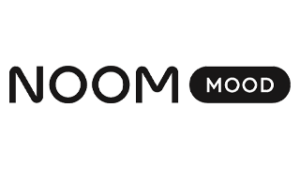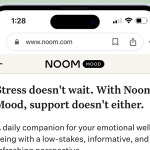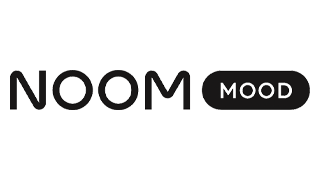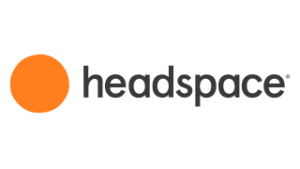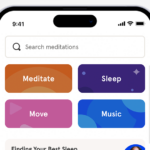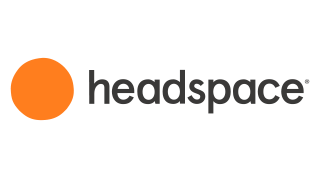Table of Contents
- We spent more than 10,000 hours researching mental health platforms, including 11 popular mental health apps that could be helpful for people with attention deficit hyperactivity disorder (ADHD).
- Our testers used each app for at least two weeks, focusing on the sign-up process, features, self-guided or professional resources, and customer service interactions.
- We surveyed over 2,000 online therapy users, held focus group interviews with both users and therapists, and consulted over 60 mental health experts.
- Our pages are updated regularly for pricing and service information and our ongoing testing of new online mental health resources.
- Learn more about how we tested apps for people with ADHD.
Key takeaways
- Inflow is the best app for supporting people with ADHD overall. It can help users learn practical skills to better manage symptoms.
- The apps we review in this article cost between $13 and $48 per month. Some apps, like Inflow and Headspace, offer free trials.
- We interviewed experts, consulted published research, and tested the mental health apps ourselves to write our review. We considered factors such as pricing, features, expert support, data privacy, and ease of use in making our picks.
Mental health apps can be helpful tools for people looking to practice mindfulness or reduce stress. There are also apps for people with attention deficit hyperactivity disorder (ADHD) that can provide support and potentially help them learn new ways to manage their symptoms. In addition to productivity or organization apps like timers and task trackers, which can be helpful tools, these mental health apps can provide educational components, coaching support, and resources to help manage the symptoms of ADHD.
For this review, we researched and tested some of the most popular mental health apps for people with ADHD. We chose apps that can complement existing mental health care and provide additional support for people managing their ADHD symptoms.
Not replacements for therapy
Mental health apps are not replacements for therapy with a mental health professional. The mental health apps mentioned in this article are meant to be used as a supportive tool in addition to conventional care to manage ADHD symptoms, which may include medication and/or talk therapy.
For online therapy options, check out our review of the best online therapy platforms that support people with ADHD.
3 best apps for ADHD support of 2024
Data privacy on mental health apps
Mental health apps may ask sensitive questions about your mood, mental health concerns, and personal information to deliver targeted resources for you. However, mental health apps may still collect data on their users to use for marketing or research. It’s important to understand how your data is collected and used before signing up for a platform or app. To do this and guard your private data in general, we recommend the following basic steps that we learned from the U.S. Department of Health and Human Services (HSS) and Mozilla Foundation’s *Privacy Not Included project:
- Look out for checkboxes during sign-up to opt out of data tracking or medical information disclosure.
- Sign up with your email, not by using a social login like Facebook.
- Choose a strong password to create a secure account login.
- Review the platform’s privacy guidelines, typically found on the website’s Privacy Policy or Terms of Use page, to understand whether and how the platform collects, stores, and shares private information.
Inflow: Best overall
Why Inflow is our pick for best overall
Inflow is an app that is intended for people 13 and older with ADHD. Users take a detailed intake questionnaire that helps the platform design a program tailored to their specific needs, with modules such as “Managing Emotions,” “Organization,” and “Task Avoidance.” The platform’s program is based on cognitive behavioral therapy (CBT) principles, emphasizing education and self awareness about ADHD symptoms and strategies that can help users make behavioral changes.
Inflow also encourages users to interact with its community of users through its discussion board, which has a daily prompt and live events, such as educational talks and virtual coworking sessions.
Who should consider Inflow: People who want to learn about ADHD and practice skills to help manage ADHD symptoms and any associated mental health challenges. Inflow can be good for those looking for a community of neurodivergent people who want to participate in discussions or virtual coworking sessions.
Who should consider other options: If you’re looking for weekly online therapy or medication support for ADHD. Read about our picks for the best online therapy platforms and the best online psychiatry platforms for more virtual mental health options. Consider other apps if you’re looking for task tracking and reminders.
Inflow tester and user insights
Our testers had positive experiences exploring Inflow and its resources for people with ADHD. The platform centers on learning about ADHD through a program that’s individually curated according to your answers on your intake questionnaire. During the signup process, our testers were asked about their symptoms and if they were familiar with related ADHD symptoms. The intake asked about our testers’ goals and laid out a plan of action that addressed each one of their symptoms.
The platform creates a learning program of four modules to start with. Each module contain lessons, and each lesson includes at least three of the following components:
- A check-in that assesses your current challenges and knowledge of related concepts.
- A three- to five-minute lesson that goes through definitions and examples of concepts.
- A reflection activity that encourages you to write down your thoughts in response to a prompt.
- A “brain hack,” or actionable tip that you can practice; for example, journaling techniques.
- A quiz that summarizes key points from the lesson.
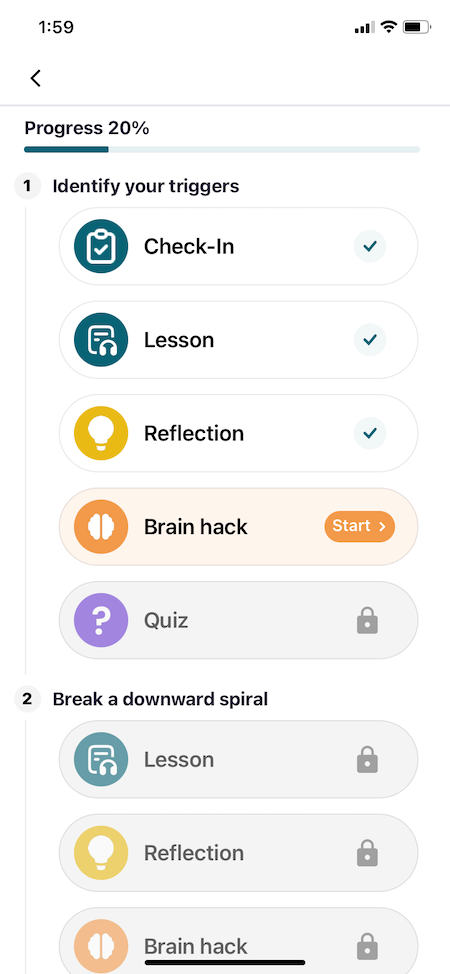
Once users complete the learning program they unlock all the modules in the platform’s library. Modules fall under categories that include:
- Time management and productivity.
- Emotional well-being.
- ADHD challenges (e.g., sensory processing).
- Life organization.
- Relationships.
- Self-improvement techniques.
- Mindfulness and mental health.
- Lifestyle (e.g., nutrition and ADHD, building habits).
Our testers acknowledged that there is a lot of information included in the learning modules, and that this might be overwhelming for some users, especially since modules aren’t locked to a daily limit like some other platforms we tested. Platforms like Noom Mood offer content that’s limited to 10–20 minutes a day.
Inflow offers one-on-one accountability coaching sessions. Coaches on Inflow can help users set goals and provide strategies and suggestions to help users meet these goals or change their habits. Some of the coaches also have ADHD themselves and can offer personal insights into the ways they manage symptoms. One of our testers had a positive experience, noting that their coach was prepared with targeted suggestions and resources that made them feel understood.
From one of our Inflow testers:
“I think people with ADHD would benefit from coaching from people who have ADHD themselves, as they ‘get it’ in a way that other coaches might not.”
Inflow also offers opportunities for its users to participate in community discussions, join coworking sessions, or attend live webinars. Discussions are based on daily prompts that the platform curates. Virtual coworking sessions through Zoom are opportunities for Inflow members to work with an accountability buddy to encourage productivity and focus. Webinars are also held on Zoom, and users can attend them live, or view recordings of past webinars.
Though the platform has the option to set a reminder to complete your daily lessons and log your priorities for the day, one of our testers wasn’t getting any notifications while they were testing. If notifications, tracking, or reminders are helpful for you, consider Headspace, which offers scheduled activities with reminders.
Noom Mood: Best for managing stress
Why Noom Mood is our pick for best for managing ADHD-related stress
Noom Mood is a 16-week program designed to teach users how to manage their stress and anxiety. While the platform is not specific to ADHD, it can still benefit users with ADHD who want help managing their stress. Chronic or intense stress responses in people with ADHD can worsen some ADHD symptoms such as impulsivity and inattention. According to experts we spoke with, reducing stress may help people with ADHD increase their focus.
Users with ADHD who want a consistent daily routine for stress reduction may find Noom Mood’s 10- to 20-minute lessons a manageable way to approach this. Our testers note that the Noom Mood program is designed with elements of CBT, which may help to support people with ADHD change their habits and responses to stress. For example, our testers were asked to practice taking intentional, 15-minute breaks every day, and at the end of the week they were given an activity that prompted them to reflect on how creating this new habit impacted their mood and overall stress levels.
Who should consider Noom Mood: People with ADHD who are looking to develop a consistent daily routine focused on reducing stress and anxiety through manageable daily lessons. People who are motivated to practice the recommendations in the lessons can benefit from the program’s concrete strategies for stress management.
Who should consider other options: Noom Mood might not be ideal for people who prefer a more flexible or fast-paced approach. It requires sticking to a structured daily routine and limits users from advancing through the lessons ahead of schedule. If you’re looking for coaching that is specific to ADHD symptoms, the guidance offered through Noom Mood isn’t tailored to ADHD.
Noom Mood tester and user insights
Our testers tried out Noom Mood’s program for two weeks, exploring the daily lessons, activities, and tools that help users build the necessary skills to manage their stress. The objectives of the program include:
- How to take control of your stress.
- How to accept what you can’t change.
- How you respond to and cope with stress.
- How to change your mind’s response to stress.
- How to prioritize the habits that help you respond more positively to stress.
- How to accept that you can’t do it all.
- How to accept that being busy all the time isn’t a badge of honor.
- How to say no.
- How to give yourself grace through self compassion.
- How to create space for more positive experiences in your life.
Some people with ADHD experience stress more intensely compared to those without ADHD, which can worsen other mental health symptoms. Sarah Whitmire, licensed professional counselor in Houston, Texas, explains, “Constant challenges [faced by people with ADHD] can also lead to feelings of underachievement or chronic stress.”
By learning and practicing healthy coping strategies, people with ADHD may be able to lessen the severity of the symptoms that interfere with their day-to-day function. The Noom Mood platform also has a daily mood tracker, which one of our testers felt helped them see patterns in their moods throughout each week, and a bi-weekly mood assessment called Mood Pulse, which measures your emotional wellness.
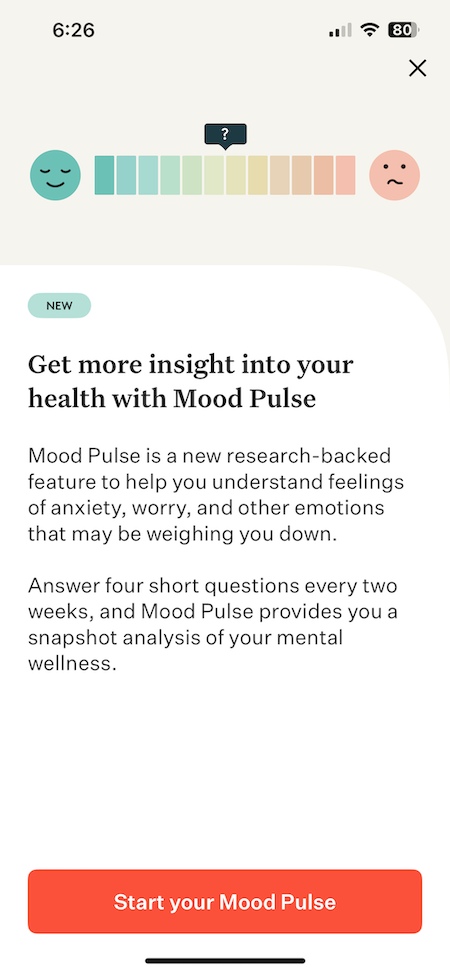
In addition, our testers noted that Noom Mood’s program is delivered in a style similar to a CBT approach, which identifies unhelpful patterns of thought and behavior and introduces healthier strategies to help manage challenging situations. Research suggests that CBT may help adults with ADHD manage their symptoms, especially if they are at a higher risk for depression or anxiety.
Our testers like that the 10- to 20-minute daily lessons can easily fit into a consistent routine, and that it has solutions-based approaches to managing stress. They also like that it includes a check-in and recap at the end of each week for accountability.
From one of our Noom Mood testers:
“Noom Mood provides a helpful framework for understanding your stress and transforming it by using specific strategies. It’s very tool-based, and I like that it offers tangible tips.”
Noom Mood offers a quick 10-minute daily lesson, but some users may need additional time to complete the program’s activities. Some of our testers say that some lessons take 10 to 20 minutes to complete.
Despite the brevity of each lesson, testers note that they were detailed and thorough. For people with ADHD who find text-heavy content overwhelming, Noom Mood also provides an audio option for its lessons, making it easier for some people to engage with the material.
Though we like that coaching is included with the program, our Handbook Team testers found it to be somewhat limited. Coaching sessions are only conducted via live chat (text), and our testers say they were just quick check-ins and accountability nudges. For those seeking coaching that is tailored specifically to their goals or ADHD symptoms, a platform like Inflow might be a better fit.
Headspace: Best for mindfulness
Why Headspace is our pick for best for mindfulness
Mindfulness is one way to manage stress and improve focus, attention, and awareness for people with ADHD. The Headspace app offers videos, activities, and resources to help users learn mindfulness and meditation skills and put them into practice in their everyday lives.
Since mindfulness is a skill that’s best practiced with consistency, our testers appreciate that Headspace’s daily program encourages users to integrate it into their daily routine. The app suggests short exercises, lessons, guided meditations, and physical activities in the morning, afternoon, and evening, and encourages users to incorporate mindfulness practices throughout the day.
Who should consider Headspace: People with ADHD who are interested in learning more about mindfulness and meditation as a way to reduce stress and improve focus can benefit from the many resources and activities on the Headspace platform.
Who should consider other options: Those who may be overwhelmed by the amount of content on the app may consider the Noom Mood program, which has a more predictable daily time commitment. Headspace’s text-based coaching does not provide tailored support focused on ADHD.
Headspace tester and user insights
Our testers found a lot of resources for mindfulness and meditation practices on Headspace. Resources include:
- Guided mindfulness activities.
- Relaxation videos.
- Guided mindfulness-based meditations.
- Lessons on mindfulness.
- Focus music.
- Sleepcasts (relaxing podcasts to help you wind down).
- Mindful movement exercise videos.
Studies suggest that in adults with ADHD, mindfulness may help improve focus and attention and may help some people manage their ADHD symptoms. Experts we interviewed also recommended mindfulness practices for helping to reduce the impulsivity that can be a symptom of ADHD. For children and teens with ADHD, studies suggest that mindfulness and physical exercise may similarly help improve ADHD symptoms. We like that Headspace also offers exercise videos under the “mindful movement” category, which may benefit adults and children who want to integrate physical activity into their mindfulness practice.
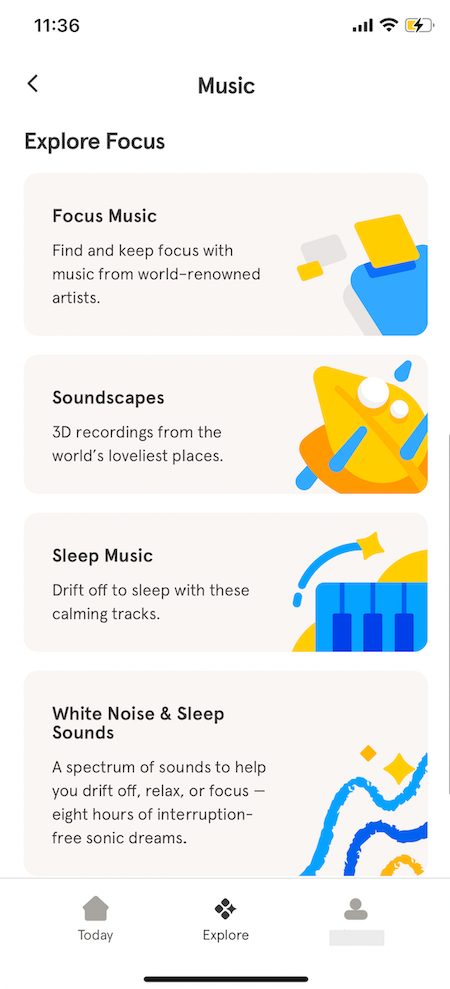
For those who are new to meditation practices, like one of our testers, some of the recommended meditations on Headspace may feel a bit advanced.
From one of our Headspace testers:
“The guided meditation was hard for me, but then again I do not think I was putting my all into it. I wish they had a guide on where to meditate and how to start for beginners.”
People who aren’t used to mindfulness and meditation may need to be extra patient with themselves as they learn the basics and become more comfortable with their new practices.
Jess Pliszka, licensed professional counselor and ADHD-certified clinical services provider at Neurolicity, shares that people with ADHD who experience hyperactive symptoms like racing thoughts, ruminations, and a feeling that one cannot “quiet” their mind, may also experience poor sleep and sleep habits. We like that Headspace also provides resources that support better sleep practices and nighttime routines, like Sleepcasts, audio podcasts that are designed to help people wind down and relax at bedtime.
Similar to Inflow, Headspace offers mental health coaching support as an add-on to the subscription. However, it’s more expensive than Inflow at $100 per month for only three live text-based sessions, and the coaches on Headspace aren’t specifically trained to provide recommendations for people with ADHD.
We chose Headspace as the best overall in our review of the best meditation apps because of its variety of activities; for example, simple breathing exercises and calming videos and music. Read our full Headspace review for more information on the program.
How we test and choose the best apps for ADHD
The Handbook Team has spent over 10,000 hours collectively researching and testing online mental health platforms, including mental health apps. To date, we’ve researched more than 20 mobile apps and tested 11 popular apps ourselves.
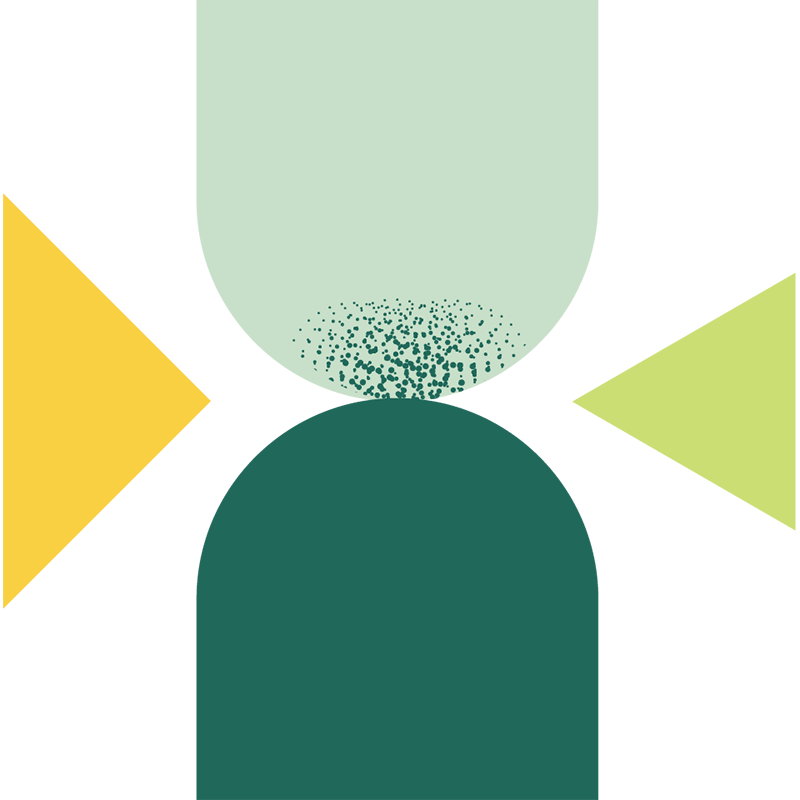

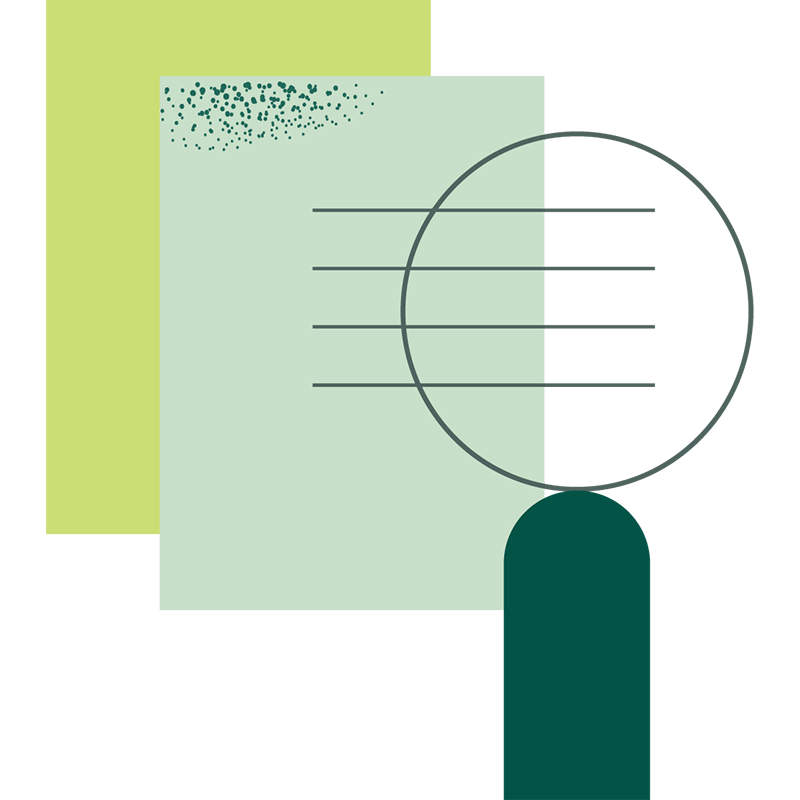
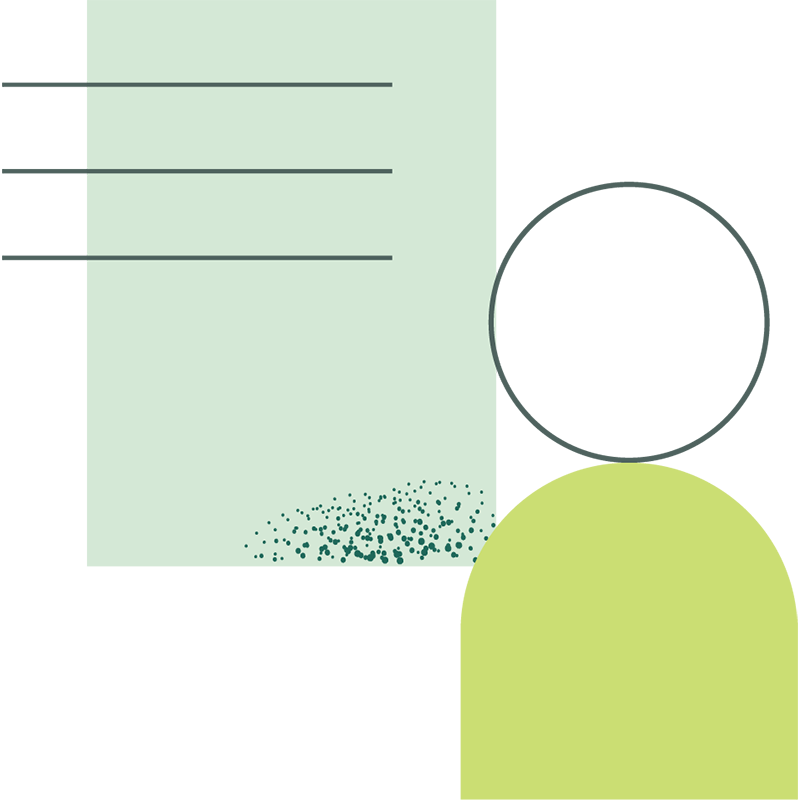
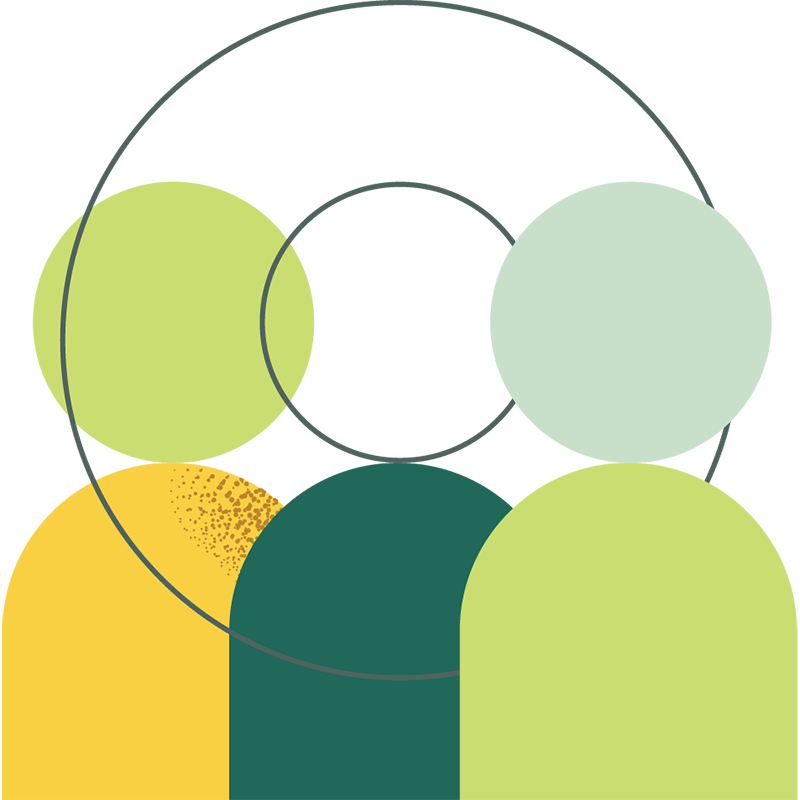

Firsthand testing experience
We chose 11 popular mental health apps to download, sign up for, and test for at least two weeks. Our testers were instructed to pay attention to the features and resources available in both the free and paid versions of the apps. For platforms that offered it, testers were asked to engage with the coaches or therapists that help support users. Testers recorded their experiences and compared their findings to similar platforms we’ve tested.
Mental health experts
We interviewed licensed therapists and board-certified psychiatrists to help frame our expert-informed approach to online mental health research. We also interviewed ADHD-certified clinical services providers (ADHD-CCSP), and psychiatrists who specialize in supporting adults and children with ADHD. These interviews yielded insights into the specific needs of people who live with ADHD and how mobile apps may, or may not, help manage the stressors that can sometimes come with the condition. Finally, we had our article medically reviewed by a mental health professional with experience treating patients with ADHD.
Learn more about our testing and review methodology for online mental health resources.
Our ADHD app testing process
In a mental health emergency
Mobile apps may not be the most appropriate resource to help in a mental health crisis. If you or someone you know is a danger to themselves or others, it is an emergency and cannot wait. You can find help immediately by:
- Calling 911
- Visiting your local urgent care or emergency room
- Calling or texting 988 for the Suicide & Crisis Lifeline
- Chatting online at 988lifeline.org
- Calling the Substance Abuse and Mental Health Services Administration (SAMHSA)’s Helpline at 1-800-662-4357 or texting your zip code to 435748
All of the above options will connect you with trained professionals who can provide crisis support. You can find even more resources, including international options, on our helpline directory page.
What to consider when choosing an app for ADHD
When choosing an app that can support ADHD symptoms, there are several factors you should consider, including:
- Which symptoms impact your lifestyle or mental health the most?
- Other mental health concerns, such as anxiety and depression, that may coexist with the ADHD symptoms.
- Effective sources of motivation (e.g., push notifications, prompts and reminders, peer accountability, or professional accountability).
From our expert
Once you know your individual needs, you can look for features that can help address your biggest challenges. Ozan Toy, MD, a psychiatrist and neurologist, recommends limiting app downloads and prioritizing those that address your most significant challenges. In addition, it can be helpful to regularly check in to track whether the app is helpful for you and how easy it is to integrate into your daily routines. “Regularly review and adjust app usage to ensure it continues to meet your needs … If you notice a reduction in stress and better organization, the app may likely be helpful,” Toy says.
When we researched and tested apps for people with ADHD, we looked for features that support ADHD symptoms specifically. Sharon Saline, licensed clinical psychologist and author of What Your ADHD Child Wishes You Knew, shares, “Many people think ADHD is a condition that is related to problems with concentration, hyperactivity, or inattention. Actually, ADHD is more than that. It affects how someone manages themselves emotionally, physically, and cognitively—how we think, feel, and act.”
Consider app features such as:
- Educational resources: To provide insights and strategies specific to managing ADHD symptoms.
- Daily activities: These encourage consistent routines to build healthy habits.
- Focus and concentration activities: Such as mindfulness practices that provide a structured way to build better focus and concentration.
- Reminders and notifications: These can help a user to keep track of their scheduled activities or lessons.
- Task tracking: Including goal setting and progress tracking to help prioritize tasks and stay motivated.
- Mood tracking: To reflect on intense emotions, identify emotional patterns, and visualize progress with treatment, especially for people with other conditions, such as anxiety or depression.
An app may not be an effective tool for managing ADHD symptoms for some people. Some experts we interviewed pointed out that mental health apps don’t yet have enough published research to support their effectiveness in reducing ADHD symptoms.
From our expert
“While mental health apps look useful, there is no significant peer-reviewed data that these applications actually reduce ADHD symptoms. Some may help with task completion—for example, apps with gamification or organizational planners—but they haven’t been shown to reduce ADHD symptoms compared to medication therapy.” —Ashvin Sood, child and adolescent psychiatrist at Washington Interventional Psychiatry in Washington, D.C.
Screen time can also potentially make ADHD symptoms worse, especially in adolescents. For this reason, some experts like Sood suggest implementing physical planners and reducing screen time for people with severe ADHD symptoms, or who struggle with excessive internet use.
Our final verdict
Based on our research and testing, Inflow is our choice for the best overall app that can support people with ADHD because of its targeted learning modules and coaching. We like Headspace for its potential to help people with ADHD build the mindfulness and meditation skills that can encourage focus, attention, and awareness. For people who may be overwhelmed with the amount of content to read on Inflow or Headspace, consider the Noom Mood app, which has a 16-week program that’s divided into 10-minute daily lessons and weekly activities that are aimed at building skills to reduce stress and manage emotions.
While there are many apps that may be helpful for specific aspects of ADHD, we chose mental health apps that offer research-backed ways of supporting people living with ADHD. Whether an app will be helpful for your ADHD may depend on your individual symptoms, challenges, and goals. Ultimately, it’s important to know that mental health apps work best in conjunction with mental health care provided by a professional, like a therapist or psychiatrist.
Compare the best apps for ADHD of 2024
| Best for | Supporting people with ADHD | Daily stress reduction practice | Mindfulness |
| Cost | $48 per month | $149 for 16 weeks | $13 per month |
| Free trial | 7 days | No | 14 days |
| Extra professional support | Sessions with ADHD specialists | Text-based coaching | Text-based mental health coaching |
Frequently asked questions
Our top choices for ADHD apps cost between $13 and $48 per month for paid features and programming. Inflow and Headspace offer free trials. Noom Mood costs $149 for 16 weeks.
There currently aren’t any published studies that suggest an app for ADHD can improve ADHD symptoms. However, the apps we review in this article may help people with ADHD to better understand their conditions, offer tools to help manage certain symptoms, and encourage better mental health habits.
We found that Inflow, Noom Mood, and Headspace were the best choices to consider for apps for ADHD, according to our team’s research.
- Children and Adults with Attention-Deficit/Hyperactivity Disorder (CHADD). Could a Body Double Help You Increase Your Productivity? ADHD Newstand for Adults. Link
- Saccaro, L. F., Schilliger, Z., Perroud, N., & Piguet, C. (2021, September 24). Inflammation, Anxiety, and Stress in Attention-Deficit/Hyperactivity Disorder. Biomedicines, 9(10), 1313. Link
- Stickley, A., Shirama, A., Inagawa, T., Ruchkin, V., Koposov, R., Isaksson, J., Inoue, Y., & Sumiyoshi, T. (2022, November 8). Attention–deficit/hyperactivity disorder symptoms, perceived stress, and suicidal ideation during the COVID-19 pandemic. Frontiers in Psychiatry, 13, 1008290. Link
- Barra, S., Grub, A., Roesler, M., Retz-Junginger, P., Philipp, F., & Retz, W. (2021, March 9). The role of stress coping strategies for life impairments in ADHD. Journal of Neural Transmission, 128, 981–992. Link
- Liu, I., Hua, H., Lu, L., & Goh, K. K. (2023, February 16). Effectiveness of cognitive behavioural-based interventions for adults with attention-deficit/hyperactivity disorder extends beyond core symptoms: A meta-analysis of randomized controlled trials. Psychology and Psychotherapy: Theory, Research and Practice, 96(3), 543-559. Link
- Lee, C. S., Ma, M., Ho, H., Tsang, K., Zheng, Y., & Wu, Z. (2017). The effectiveness of mindfulness-based intervention in attention on individuals with ADHD: A systematic review. Hong Kong Journal of Occupational Therapy, 30, 33-41. Link
- Modesto-Lowe, V., Farahmand, P., Chaplin, M., & Sarro, L. (2015, December 22). Does mindfulness meditation improve attention in attention deficit hyperactivity disorder? World Journal of Psychiatry, 5(4), 397-403 Link
- Bigelow, H., Gottlieb, M. D., Ogrodnik, M., Graham, J. D., & Fenesi, B. (2021, June 13). The Differential Impact of Acute Exercise and Mindfulness Meditation on Executive Functioning and Psycho-Emotional Well-Being in Children and Youth With ADHD. Frontiers in Psychology, 12, 660845. Link
- Gnanavel, S., Sharma, P., Kaushal, P., & Hussain, S. (2019, September 6). Attention deficit hyperactivity disorder and comorbidity: A review of literature. World Journal of Clinical Cases, 7(17), 2420-2426. Link
- Wallace, J., Boers, E., Ouellet, J., Afzali, M. H., & Conrod, P. (2023, October 23). Screen time, impulsivity, neuropsychological functions and their relationship to growth in adolescent attention-deficit/hyperactivity disorder symptoms. Scientific Reports, 13(1), 1-14. Link






